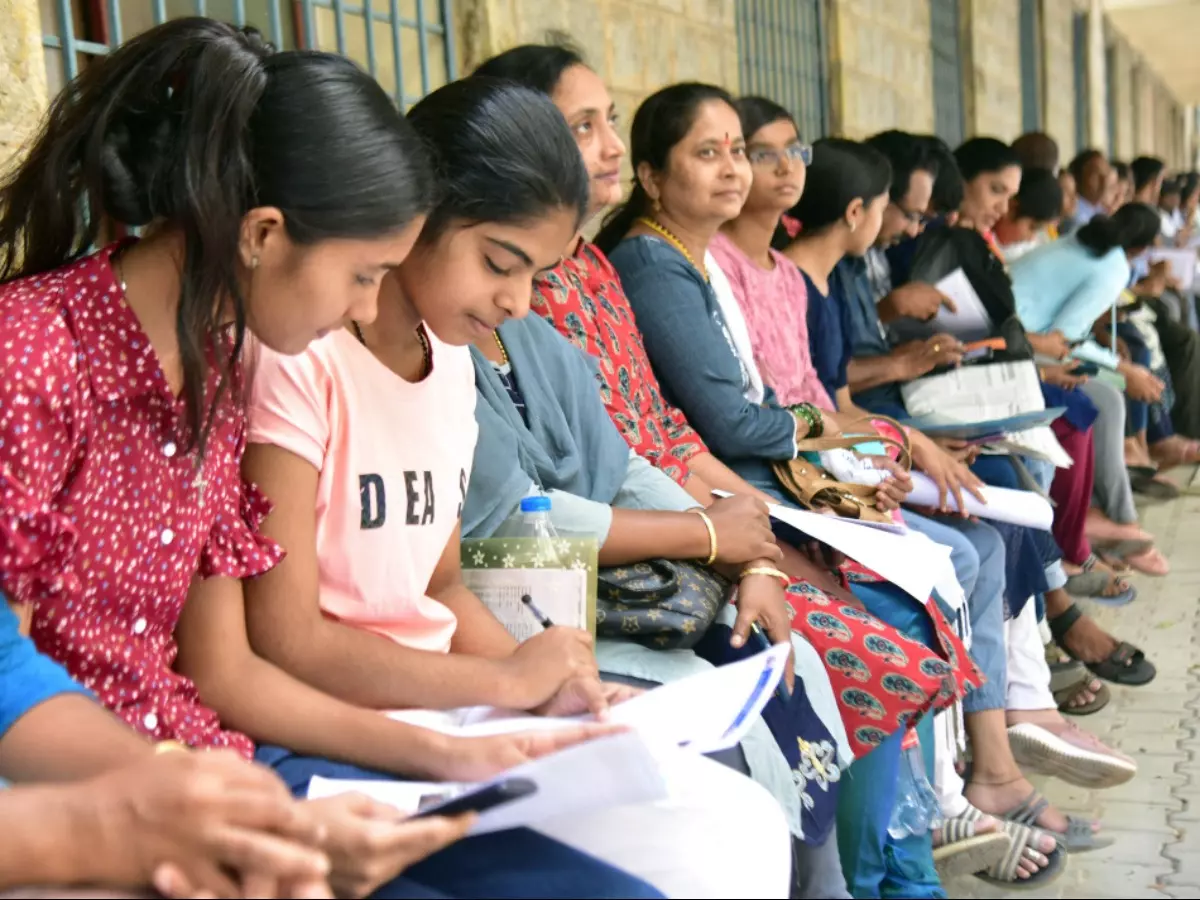The Bitter Sweet Pill Of Dummy Schools In India; CBSE And Govt Take Tough Actions But Are They Enough To Bell The Cat?

The issue of dummy schools in India has once again come under the scanner, the Delhi High Court recently ordering the Central Board of Secondary Education, CBSE and the Delhi government to take stringent action against such institutions.
Even as the authorities are waking up to the reality of these schools, the real question is – are these actions enough to curb the deep-rooted problem, or is the system merely scratching the surface?
The Crackdown
The Delhi High Court, in a stern observation, labeled dummy schools as a “fraud” that allows students to enroll using “absolutely false information” while skipping regular schooling entirely.
These schools serve as a loophole for students to focus exclusively on coaching for competitive exams like NEET and JEE, bypassing the traditional school experience. A division bench of Chief Justice D K Upadhyaya and Justice Tushar Rao Gedela has sought an affidavit from the Delhi government and CBSE on the actions taken against such institutions.
Now, taking a tough stance, CBSE officials have indicated that students enrolled in dummy schools may not be allowed to appear for the upcoming Class 12 board exams.
In a series of surprise inspections in December last year, CBSE investigated 29 schools in Delhi, Bengaluru, Varanasi, Bihar, Gujarat, and Chhattisgarh to assess the scale of dummy school enrollments. This move is seen as the first step towards dismantling the nexus of coaching centers and dummy schools that have become a common workaround for students aiming to crack India’s toughest entrance exams.

But Why Are Dummy Schools So Popular?
Despite the legal and moral debates surrounding dummy schools, their popularity remains high among students and parents. The primary reason is the intense competition for limited seats in medical and engineering institutes. Many students prefer dummy schools to avoid the distractions of traditional schooling and dedicate their time solely to coaching classes.
Additionally, the Delhi domicile advantage plays a crucial role, students enrolled in Delhi dummy schools become eligible for the Delhi State Quota in medical colleges, giving them a significant admission advantage.
The business of dummy schools is flourishing, particularly in coaching hubs like Kota. Posters advertising dummy schools and their rates are plastered across the city, with varying fees based on the board affiliations and while these institutions cater to the aspirations of thousands, they have also become part of a larger issue affecting student well-being and mental health.
The Dark Side. Rising Suicides & Mental Health Concerns
Kota, India’s coaching capital, has been witnessing an alarming rise in student suicides. As many as 28 students died by suicide in Kota in 2023, while 17 died in 2024. At least seven coaching students have committed suicide so far this year.
The pressure to perform, coupled with isolation from regular school life, has led to deteriorating mental health among students. Experts argue that early disengagement from traditional schooling hinders personality development, leaving students with limited coping mechanisms for stress.
The ongoing investigation into the NEET 2024 exam scam has further exposed the vulnerabilities in the Indian education system. With increasing concerns over coaching center influence and the devaluation of school assessments, the necessity of reforming the system has never been more urgent.
Dummy Schools Continue to Dodge CBSE Surprise Checks and Actions
Despite repeated crackdowns, CBSE-affiliated schools are still admitting extra students in Classes XI and XII, allowing them to focus on external coaching while falsely marking them present in school records.
CBSE’s surprise inspections and actions haven’t been able to stop the practice. In 2024, the board conducted surprise checks in 27 schools – 22 in Delhi and five in Rajasthan – and found that every single one had admitted more students in Classes XI and XII than they had in Classes IX and X.
On September 13, 2024, CBSE secretary Himanshu Gupta issued a press release confirming that the board had sent showcause notices to these schools.
“The inspections revealed that schools had enrolled a higher number of students in Classes XI and XII who are not physically attending classes. Moreover, discrepancies were noted in attendance records, raising concerns about their compliance with CBSE regulations. Some institutions were also found violating infrastructure norms, compromising education quality and student safety,” the statement read.
Back in December 2023, CBSE carried out similar inspections in 34 schools and found evidence against 23 of them. As a result, 20 schools were disaffiliated, while three were downgraded.
A couple of school principals have pointed out that dummy school admissions have increased in recent years, especially after the central government introduced a standardized entrance test for undergraduate courses in universities.
A member of the inspection team revealed that some schools had admitted nearly 10 times the permitted strength in Classes XI and XII.
“Some schools take in a massive number of students in Classes XI and XII without proper facilities. These are what we call dummy schools. Some provide coaching within the school premises, while others have tie-ups with external coaching centers,” a principal explained.
Students in regular schools have to complete projects, assignments, and maintain 75% attendance. However, private coaching institutes often advise parents to admit their children to specific private schools in Classes XI and XII, where attendance and other formalities are taken care of without requiring actual attendance.
“The dummy schools offer complete flexibility. Students don’t attend classes or practical sessions, and the school maintains false records to submit to CBSE. This allows students to focus entirely on coaching,” the principal added.

Serious Issues
Here are some major pitfalls of dummy schools and their real impact on students and the education system –
1. Weak Academic Foundation
Dummy schools allow students to bypass regular schooling, meaning they miss out on essential academic concepts, classroom discussions, and structured learning. While they may excel in coaching for competitive exams, their overall knowledge base, especially in subjects beyond their core focus, remains weak.
2. Limited Personality Development
School is not just about academics; it plays a crucial role in shaping a student’s personality, communication skills, teamwork, and emotional intelligence. Students in dummy schools miss out on extracurricular activities, group projects, debates, and social interactions, leading to poor confidence and a lack of essential life skills.
3. Mental Health Issues & Rising Suicide Cases
The extreme pressure of competitive exams, combined with isolation from regular school life, takes a toll on students’ mental health. Kota, India’s coaching hub, has seen a record number of student suicides, and experts believe the lack of a balanced school life plays a huge role in this crisis.
Dummy schools operate in a grey area, often bending rules regarding attendance and practical work. Many maintain fake records to comply with CBSE regulations. This not only questions their credibility but also raises concerns about the integrity of the education system.
Many students exploit dummy schools to gain an unfair advantage in state quota admissions for medical and engineering colleges. For example, students enroll in dummy schools in Delhi to qualify for the Delhi State Quota (DSQ) in medical colleges, taking away seats from genuine local students.
With the rise of dummy schools, regular school education is becoming secondary to coaching institutes. This shifts the focus from holistic learning to rote-based, exam-oriented study patterns, affecting the overall quality of India’s education system.
Dummy schools thrive on their partnership with coaching institutes. As more students opt for dummy schools, coaching centers become the primary source of education, often charging exorbitant fees. This commercialization of education creates an uneven playing field where only those who can afford costly coaching can compete.
Students trained in dummy schools often struggle in college, where self-learning, research, and participation in discussions are crucial. Since they have been conditioned to follow a rigid coaching schedule, adapting to a university environment becomes challenging. Many also face difficulties in job interviews and corporate settings due to underdeveloped interpersonal skills.
The Last Bit
Yes, dummy schools seem like a shortcut to cracking competitive exams, but they come with long-term consequences.
The lack of holistic education, mental stress, and ethical concerns surrounding these institutions make them a flawed solution to a deeply ingrained problem in India’s education system. If reforms aren’t introduced soon, we risk raising generations of students who may be academically strong but lack critical thinking, creativity, and social skills essential for real-world success.
The debate around dummy schools is far from one-sided. While they allow students to focus on competitive exam preparation, they also contribute to a host of systemic problems – educational fraud, mental health issues, and the dilution of school education. The government’s recent actions are a step in the right direction, but whether they will be effective in tackling the issue remains uncertain.
As India struggles with the challenges of its education system, are dummy schools a necessary evil, or is it time to bid them farewell for good?




